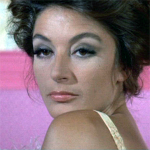
Review: Yossi (2012)
Cast: Ohan Knoller, Shlomo Sadan, Oz Zehavi
Director: Eytan Fox
Country: Israel
Genre: Drama | Romance
Official Trailer: Here
Editor’s Note: Yossi opened in limited release on January 25th
The greatest of sequels are those that exist not because financial concerns dictate they ought to, nor because ill-guided nostalgia demands a revisitation of the past, but because there are new ideas that can be expressed and new themes tackled through old characters. Such is the motivation of Israeli director Eytan Fox in returning to the world of his 2002 breakthrough Yossi & Jagger; a self-contained story entirely expressed in this earlier iteration, it was a great landmark of gay cinema for which few fans—if indeed any—could legitimately argue the necessity for any form of continuation.
Fox’s return to Yossi finds him a figure drowned in a sea of self-repression, his stunted emotional growth as the world around him moved on rendering him a stoic shadow in the closet resigned to ill-fated internet romance and a lifetime spent immersed in nothing but his medical career.
 A sad lamentation of homophobic intolerance, Yossi & Jagger’s unendingly affecting chronicle of the relationship between its eponymous characters—soldiers in the Israeli army whose romance was resigned to the shadows—concluded with the heart-wrenching tragedy sadly referenced in the relative loneliness of this sequel’s one-word title: Yossi. Jagger’s death, and the ensuing claim of a female soldier that they would likely have married had he lived, served to underscore the horrible burden of this forbidden love. Fox’s return to Yossi finds him a figure drowned in a sea of self-repression, his stunted emotional growth as the world around him moved on rendering him a stoic shadow in the closet resigned to ill-fated internet romance and a lifetime spent immersed in nothing but his medical career.
A sad lamentation of homophobic intolerance, Yossi & Jagger’s unendingly affecting chronicle of the relationship between its eponymous characters—soldiers in the Israeli army whose romance was resigned to the shadows—concluded with the heart-wrenching tragedy sadly referenced in the relative loneliness of this sequel’s one-word title: Yossi. Jagger’s death, and the ensuing claim of a female soldier that they would likely have married had he lived, served to underscore the horrible burden of this forbidden love. Fox’s return to Yossi finds him a figure drowned in a sea of self-repression, his stunted emotional growth as the world around him moved on rendering him a stoic shadow in the closet resigned to ill-fated internet romance and a lifetime spent immersed in nothing but his medical career.
In some respects it’s a film that could easily stand alone, neither its plot nor its primary character arc entirely dependent upon the events and ending of the previous film. Yet having the benefit of Yossi & Jagger behind it, this story assumes the fresh relevance of contrast, the growth of Israel in the interim decade facilitating a number of prominent and more subtle comparisons between the contexts of the two films. Fox underlines the memory of the past with scenes and shots that directly recall the earlier film, an early sequence of confession even involving the very same chair upon which Yossi sat to make another ten years prior. Such understated cues emphasise the stilted nature of this man, while the openly and unashamedly gay soldier whom he encounters in the course of the film attests the evolution of Israeli society to newfound levels of acceptance.
His constant pain, encompassing but never embittered, finds expression in every tired movement Knoller makes, his confident return to this character and understanding of the changes he has undergone making this a powerful portrayal of loneliness and loss.
 Yossi—the film as much as the character—hangs on the solemnly sensitive performance of Ohad Knoller, whose physical aging since the previous film informs so much of his character’s melancholy world-weariness. In his eyes there resides the tired husk of a man worn out by a decade of grief and self-denial, fatigued by years of emotional isolation and physical deprivation. His constant pain, encompassing but never embittered, finds expression in every tired movement Knoller makes, his confident return to this character and understanding of the changes he has undergone making this a powerful portrayal of loneliness and loss. Here is a man destroyed by an intolerant society now gone as if it were never there, beset by the scars of a world which no longer exists, trapped in an existence anchored to the pain of the past.
Yossi—the film as much as the character—hangs on the solemnly sensitive performance of Ohad Knoller, whose physical aging since the previous film informs so much of his character’s melancholy world-weariness. In his eyes there resides the tired husk of a man worn out by a decade of grief and self-denial, fatigued by years of emotional isolation and physical deprivation. His constant pain, encompassing but never embittered, finds expression in every tired movement Knoller makes, his confident return to this character and understanding of the changes he has undergone making this a powerful portrayal of loneliness and loss. Here is a man destroyed by an intolerant society now gone as if it were never there, beset by the scars of a world which no longer exists, trapped in an existence anchored to the pain of the past.
The mark of a truly great film is its ability to transcend its major issues; Fox’s obscurity as a filmmaker at the time of Yossi & Jagger made it a film hampered by lacklustre production values and inexperienced cast, yet elevated far beyond any such quandaries by the searing relevance of its story and the implications it carried. It was never at all a handsome film, but it was certainly a beautiful one, the extent of its emotional engagement such that it easily transcended the limitations of its form. His equipment may be upgraded, his cast now made of professionals, his budget inflated, but Fox retains the same sense of this character, the same regard for the importance of the issues he tackles. He has made with Yossi a sequel of unlikely triumph, another great landmark of gay cinema every bit as crucial as its predecessor.
Related Posts
![]()
Ronan Doyle
![]()
Latest posts by Ronan Doyle (see all)
-
http://twitter.com/Bryan_C_Murray Bryan Murray
































